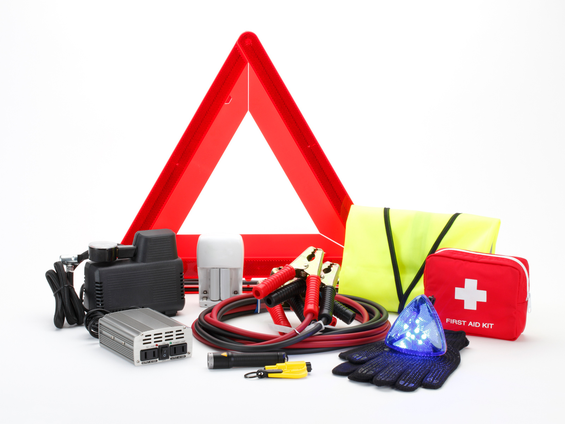The Most Common Car Rental Mistakes and How to Solve Them

Car rental services offer independence and flexibility during your travels; however, without proper planning, they can cost you both time and money. Below, you’ll find detailed explanations of the most common mistakes made during the rental process and practical solutions to ensure a smooth experience.
Choosing the Wrong Vehicle
One of the most frequent mistakes in the car rental process is focusing solely on budget and overlooking the vehicle’s intended use. For example, renting a large SUV for short city trips can create parking hassles and unnecessary fuel consumption. Conversely, selecting a small economy car expecting long-distance comfort may leave you dissatisfied.
To solve this issue, clarify the details of your trip: How many passengers will be traveling? How much luggage will you carry? What are the road conditions in your destination? Once you identify your needs, use filters on rental websites to focus on fuel type, engine power, trunk capacity, and other features. This way, you can make a choice that is both comfortable and cost-effective.
Failing to Read the Agreement Carefully
Signing the rental agreement without reading it thoroughly can lead to unexpected extra charges later on. Critical clauses—such as pickup and return times, additional driver fees, late return penalties, fuel policy, and insurance coverage—are often overlooked. Ignoring these details can result in hefty bills down the road.
As a solution, read the rental agreement in full before you sign and ask the agent to clarify any points you don’t understand. Pay special attention to the cost of optional services, the deposit amount, and late return fees. Confirming each clause before approval will protect you from surprise expenses later.
Misunderstanding Insurance Coverage
Terms like basic insurance, full coverage, CDW (Collision Damage Waiver), and LDW (Loss Damage Waiver) can make the rental process complex. Many renters rely only on the basic package and end up responsible for all damages to the vehicle. Minor scratches can quickly turn into large repair bills.
To avoid this problem, review all available insurance options in detail. CDW and LDW cover a significant portion of repair and penalty costs in case of an accident, but some exceptions—such as tires, windows, and undercarriage damage—may still fall on you. If needed, expand your coverage with additional collision or theft protection.
Skipping the Inspection at Pickup
Failing to document existing damage when you pick up the rental can leave you liable for extra charges when you return the car. Rental companies usually accept the vehicle’s condition at the time of pickup as the baseline; any new damage is deemed your responsibility. Missing or inaccurate documentation can lead to disputes and added costs.
To prevent this, inspect the vehicle thoroughly before driving off—check the exterior, interior, tires, windows, and mirrors. Photograph any scratches or dents and have them noted on the pickup form. Repeat the same inspection at return to ensure no additional damage is claimed. This protects your rights and helps avoid conflicts.
Ignoring the Fuel Policy
Rental companies typically operate on a “full to full” or “same to same” fuel policy. Accepting the vehicle without checking the fuel level, or returning it with less fuel than required, incurs high refueling and service charges. These fees often exceed the rental cost and can strain your budget.
To avoid this mistake, confirm the fuel policy at booking. If you choose “full to full,” refill the tank just before returning the car. Identify nearby gas stations to the return location in advance to save time and extra charges.
Overlooking Extra Service and Equipment Fees
Extras like GPS, child seats, snow chains, or additional drivers are not always included in the base rental price. When you need a driver change or navigation support on the day of rental, unknowingly accepting these fees can inflate your budget.
To address this, clarify all optional service fees at reservation. Some companies offer these items for free, while others charge daily or flat rates. Determine your equipment needs and add them to your booking in advance to avoid last-minute costs and ensure service quality.
Misestimating the Rental Duration
Rental periods are calculated by the hour, and even a few minutes’ delay can trigger high late return fees. Conversely, overestimating your needs leads to unnecessary expenses. Inaccurate timing can also add undue stress to your trip.
To prevent this, plan realistically—consider potential delays in flight or train schedules and set clear pickup and return times. Allow for a buffer of a few hours to accommodate sudden changes, helping you avoid penalties.
Trusting a Company Without Research
Many car rental companies exist, but not all offer the same reliability and service quality. Booking online without checking user reviews and ratings can expose you to poor service or even scams.
Minimize this risk by researching customer feedback, social media comments, and independent review sites. Verify the company’s licensing and emergency support capabilities. Companies with a wide branch network and responsive customer service ensure faster assistance in unforeseen situations.
Forgetting Required Documents for International Rentals
When renting a car abroad, you often need not only your local driver’s license but also an International Driving Permit (IDP) and a valid passport. Some countries impose minimum age requirements, credit card security deposits, or a certain length of driving experience. Failure to meet these requirements can result in being unable to pick up the vehicle or having to pay additional deposits.
To avoid this, research the car rental regulations of your destination country through official sources. Check the validity of your IDP and passport. Also confirm any security deposit amounts, deposit policies, and payment terms, and prepare all documents in advance.
Booking Without Price Comparison
The same vehicle model and specifications can have varying prices across different rental companies or booking platforms. Jumping at the first low-priced option may cause you to miss better deals and promotions. If you don’t track early booking discounts, loyalty programs, or off-season rates, you may pay more than necessary.
To prevent this, use price comparison websites alongside official company sites. Take advantage of early booking deals or sign up for exclusive discount codes. Compare weekday versus weekend rates, off-season offers, and long-term rental packages to protect your budget.
The most common mistakes in car rental—choosing the wrong vehicle, ignoring the agreement and insurance coverage, overlooking pickup and fuel policies, neglecting extra equipment fees, miscalculating rental duration, failing to research the company, forgetting necessary documents for international rental, and skipping price comparisons—can all be avoided through careful planning, thorough contract review, diligent inspections, needs-based booking, and market monitoring.
A well-informed rental experience enhances time management, budget control, and travel comfort. By applying these recommendations, you will save money and enjoy peace of mind throughout your journey. If you’d like comprehensive articles on other topics, let me know the next title you'd like me to cover.











